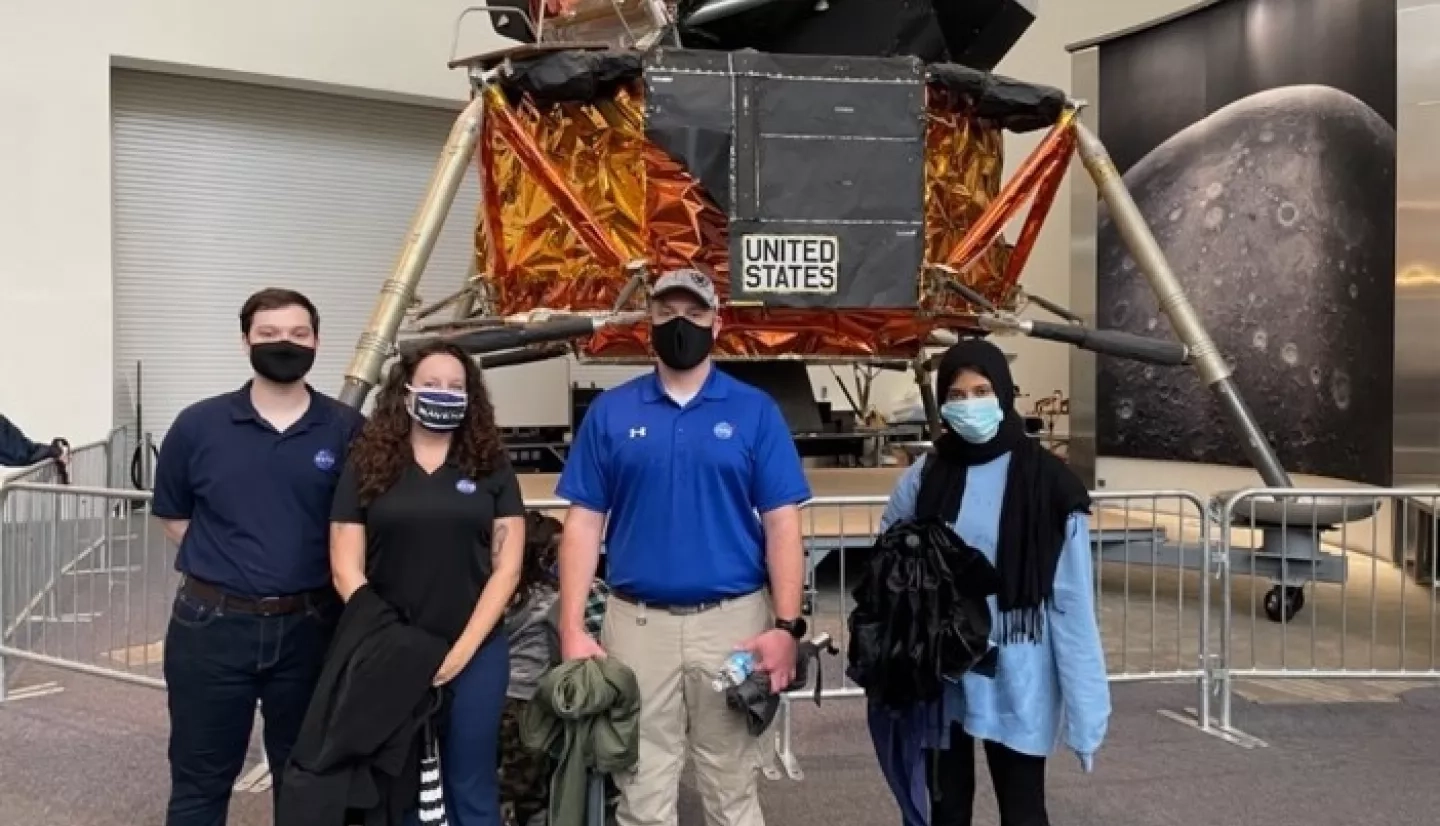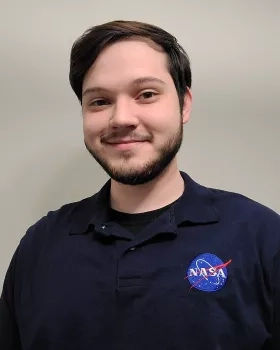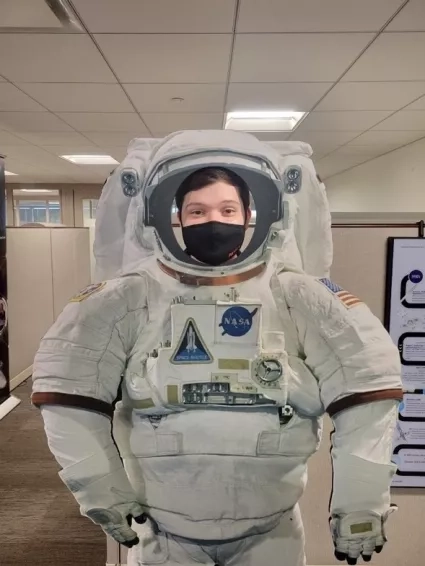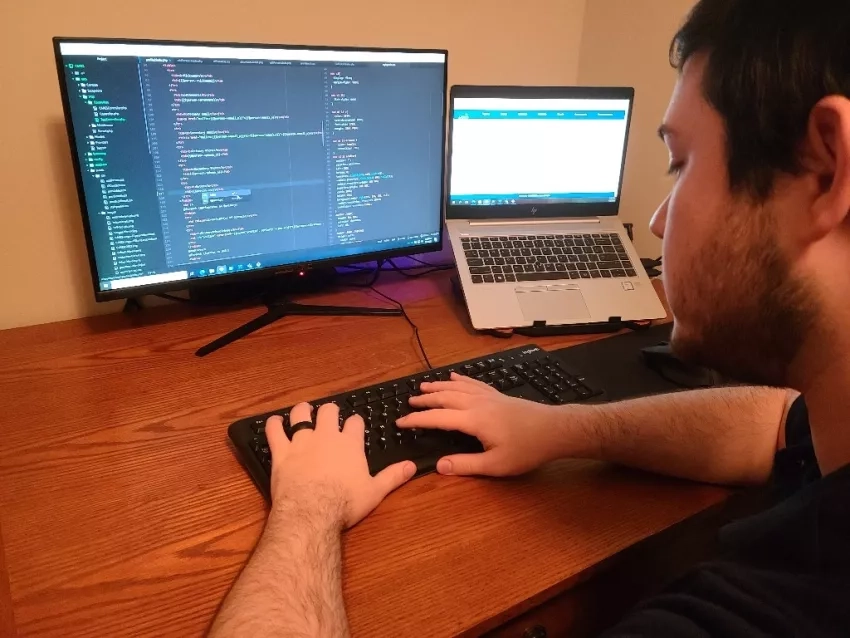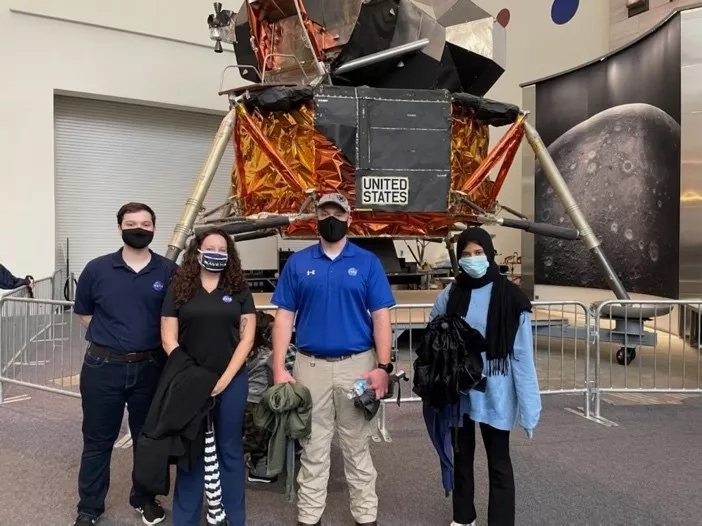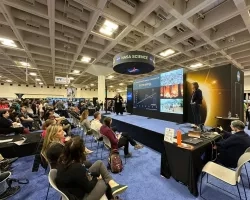Editor’s note: This article continues our series of profiles presented from the perspective of NASA interns and graduate students. The intent is to provide opportunities to discover and understand the unique value of NASA’s diverse workforce through new lenses. For this story, NASA Applied Sciences Disasters program science writer intern and Millersville University graduate student, Eryne Sheffield talked with Eric Baca, a software engineering intern, working in the Disasters program area.
If one were to compose a list of amazing people to watch, Eric Baca would be at the top. Eric Baca, a Software Engineering intern for the NASA's Earth Applied Sciences Disasters program area, is currently a senior at the University of North Carolina Charlotte. He is currently studying Computer Science with a concentration in Software Engineering and will complete his studies in 2022. To understand where this LEGO lover, Galaxy Quest enthusiast, and car lover is going, you must take a second and appreciate his roots. When asked what makes Eric, Eric, he begins talking about his mother. His mother hails from New Caledonia, a French territory located in the South Pacific Ocean. This group of islands looks straight out of a Travel Channel show, with turquoise waters, an immense double coral barrier reef, and bustling wildlife.
Eric informed me of the difficult decision his mother had to make after winning the Green Card Lottery, also known as the Diversity Immigrant Visa. This program, established in 1990, encouraged people to immigrate to the United States from countries all over the world. In this lottery, winners receive a United States Permanent Resident Card, which gives them the chance to apply for the Diversity Visa. It was time to make a change and take a chance. They did not have much, so as a single mother, Eric’s mother did the best she could to improve her family's life. She accepted the lottery results and moved them to Charlotte, North Carolina. The big move would not be the only change that Eric would endure.
When Eric reached the 3rd grade, he was pulled out of public school and was homeschooled. Baca received his GED at the age of 16, then attended school at Central Piedmont Community College. In the fall of 2016, he started working 35 hours a week at a KFC restaurant, then Amazon. Three years later, in December of 2019, Baca graduated with his associate degree in Computer Science with a concentration in Mathematics. He transferred to UNC Charlotte the following spring semester of 2020. The pen dropped in March. While his mother was visiting New Caledonia for the first time in roughly 30 years, the first COVID waves hit, along with the fear and uncertainty that came with the emerging pandemic. New Caledonia locked down its borders. Eric’s mother was stuck, leaving him alone in the U.S. The lockdown forced Baca to take on a new role, CEO of his mother’s company. To put everything in perspective, Eric was a college student, working at Amazon, and now, CEO of a company he was not expecting to run. All of this while having to switch to online school. To say that this was a big adjustment is an understatement, but Eric did it, and he did it well.
Persevering, Baca landed an internship with an investment company as a Full Stack Software Engineer in the summer of 2021. There, he designed and implemented a user interface to automate the creation of various applications, custom workflows, and other work items that sped up their processing time by 80%. From that internship, he not only gained technical experience and real-world applications for software engineering, but he also caught the attention of NASA.
He would make it to the NASA Disasters program area in fall 2021. Baca says, “If I can do it, then anyone can. There’s no reason that the next guy can’t be here. Sometimes, everyone needs a chance to prove themselves.” Eric always dreamed of working for NASA. He saw it as unobtainable, but what changed his perspective was hearing someone say that “NASA is for everybody. NASA needs a little of everything. They don’t need 5,000 rocket scientists. They need a few hundred rocket scientists, hundreds of emergency management people, they need so many different experts for all of the difficult things that they do.” Hearing those words inspired him and made him realize that his dream could become a reality with hard work and passion. “If (working at NASA) is your dream, why not go for it?” Baca asks. “You don’t want to be stuck years later thinking, “what if?” It’s always been his dream to work on anything space-related. Eric is very passionate about various missions in NASA. He tells me that he is most excited the Artemis program, a series of NASA's missions that will return astronauts to the moon’s surface.
Eric is now a software engineering intern for NASA’s Disasters program working on CARES, or the Coordination of Activations Research and Engagement System, under mentors Brady Helms and Jennifer Paris. In this role he and the CARES team are designing a MySQL database and web application to display over 150 emergency management contacts. More than 30 Disasters program personnel at more than ten NASA centers will use this internal application to speed communication before, during and after disasters strike. It was clear to me in our interview that Eric Baca is the definition of perseverance. He has faced hardships from the moment he was born, yet never let that stop him. From all of us here at NASA, Eric, never give up and never surrender your dreams. We stand behind you and look forward to seeing where you go next.
